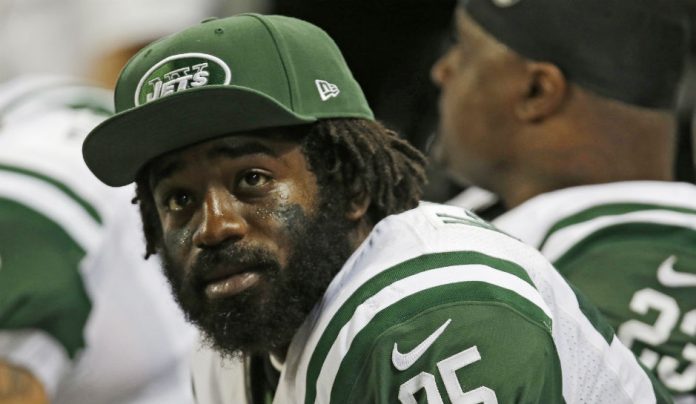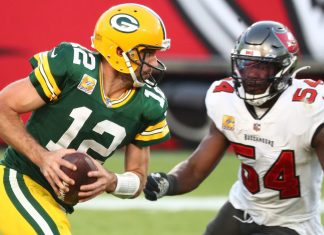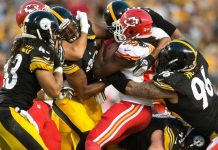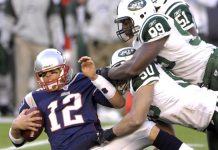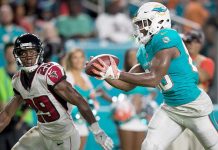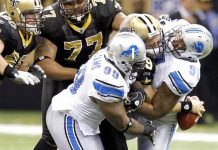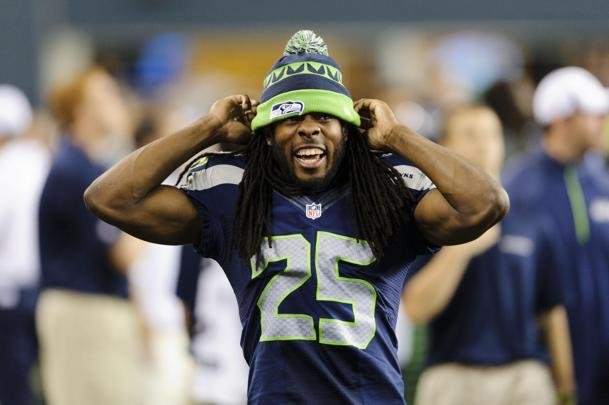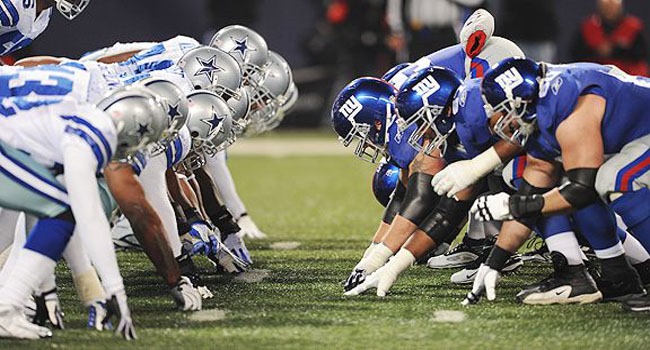HARVEY, La. (AP) A road rage incident possibly sparked by a driver cutting off another on a nearby bridge spiraled into a shooting that left an ex-NFL player dead, authorities said, amid criticism the shooter was allowed to go free.
Joe McKnight, 28, was shot Thursday afternoon in Terrytown, across the Mississippi River from New Orleans. Authorities identified Ronald Gasser, 54, who stayed at the scene, as the shooter and released him overnight.
At a news conference Friday, Jefferson Parish Sheriff Newell Normand said the altercation started on a nearby bridge and proceeded into the New Orleans suburb.
Witnesses reported hearing rapid gunfire after the two men were in a heated argument. Gasser shot McKnight three times from inside his car while McKnight stood outside. No charges have been filed, and some have criticized the sheriff for releasing Gasser.
Morris Reed Sr., president of the New Orleans branch of the NAACP, was part of a small group of protesters outside the sheriff’s office Friday. He said they would ask the Department of Justice to open an independent investigation into the shooting.
”Until someone is charged with a crime, justice is not served,” he said on local media.
Dozens of people gathered at the scene of the shooting Friday night, holding hands in prayer and lighting candles. One woman held a sign saying ”This is murder.”
Normand defended his handling of the case, saying they would investigate thoroughly. Speaking of Gasser’s release, the sheriff said the state has certain ”statutes” that provide a defense to certain crimes but did not go into detail.
Normand rejected accounts in local media speculating about the shooting. He said there’s no video of the incident and Gasser did not stand over McKnight, firing. Coroner Gerry Cvitanovich said McKnight’s three wounds were not consistent with being shot from above.
When asked whether the state’s ”stand your ground” law will play a role, Normand said: ”It is one of the issues that looms on the horizon,” before saying he didn’t want to give an opinion.
”Stand your ground” laws give people wide latitude to use deadly force when they believe they are in danger. Dane Ciolino, a Loyola University law professor in New Orleans, says under such laws people ”engaged in lawful activity in a place where they have a lawful right to be, don’t have to retreat.”
He said it ”… boils down to whether the killing is necessary for this man to save his life.”
Authorities have said McKnight didn’t have a weapon on or near him when found.
But news that Gasser has been involved in a similar altercation – at the same intersection – with a driver a decade ago will likely raise further questions about who was the aggressor.
Normand said in a press release late Friday that in February 2006, a man observed a truck driving erratically and called a number on the truck, speaking to a man later identified as Gasser.
Gasser and the man got into a fight on the phone and then Gasser followed the man to a service station, confronted him and hit him several times. Gasser drove away and the victim called 911.
Investigators found Gasser and issued a misdemeanor summons for simple battery, which was later dismissed. Authorities said they are trying to determine why it was dismissed.
McKnight’s grandmother, Barbara Franklin, said relatives are ”trying to find out our own selves” just what happened and why Gasser was released.
”He might be released now, but God is going to bring about justice in it,” she said by phone.
McKnight’s death was eerily similar to that of former New Orleans Saints player Will Smith who was killed last April in a shooting sparked by a traffic altercation.
The man accused of shooting Smith goes on trial Monday in New Orleans. The discrepancy in how the two shooters were treated stood out for Kawanee Holmes, of Gretna, Louisiana who came to the intersection where McKnight was shot to leave balloons and flowers with a friend.
”It wasn’t justified what he did. He could have defused the situation by driving away,” Holmes said.
McKnight is black and Gasser is white, authorities said. Normand denied race played a role, pointing out that the man who raised McKnight used to be a sheriff’s deputy and many people in the department are close to his family.
McKnight played three seasons for the New York Jets and one with the Kansas City Chiefs. He spent this season in the Canadian Football League. He was considered the nation’s No. 1 running back recruit when he came out of Louisiana in 2006 and signed with the University of Southern California.
Former teammates in New York remembered McKnight fondly.
”I enjoyed the time when he was here and getting to know him as a person. I think it’s going to hurt his son the most and that’s what is really bothering me – knowing that a kid will have to grow up without his dad,” said Muhammad Wilkerson.
The Jets plan a moment of silence before Monday’s game to honor McKnight.
Seattle Seahawks coach Pete Carroll coached McKnight at USC and said he had talked with McKnight just three weeks ago in California.
”He had a great heart, he was a great kid, he was fun to be around, fun loving but you just knew he had a lot of stuff to overcome and he was making it,” Carroll said. ”We’re going to miss him greatly,” Carroll said.
—
Associated Press reporters Jeff Amy in Jackson, Mississippi, Dennis Waszak Jr. in Florham Park, New Jersey, and Tim Booth contributed to this report.
—
Follow Rebecca Santana on Twitter (at)ruskygal.
25% Bonus via Western Union


